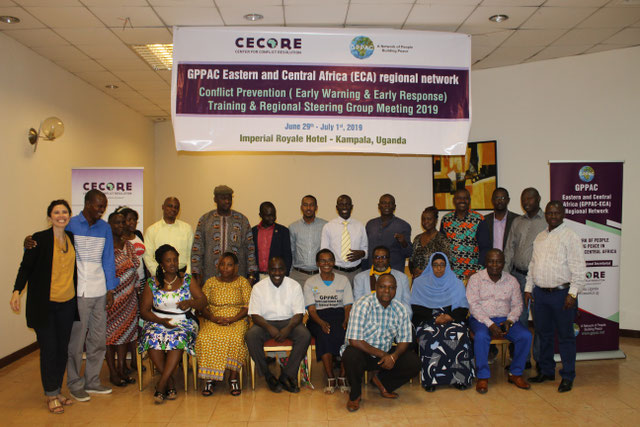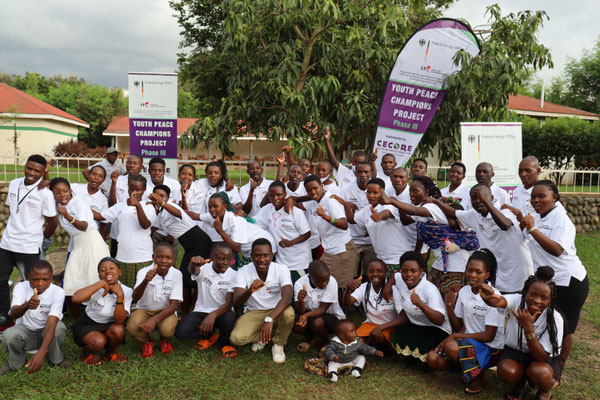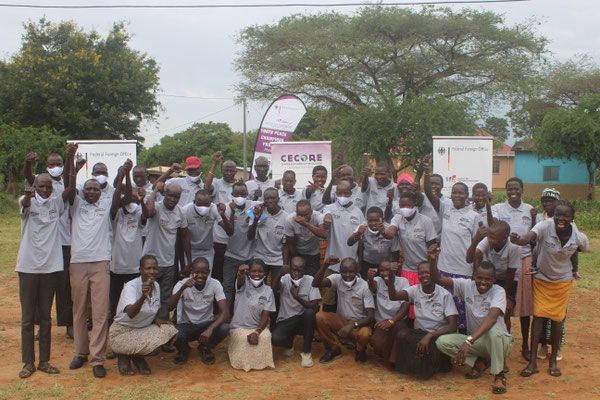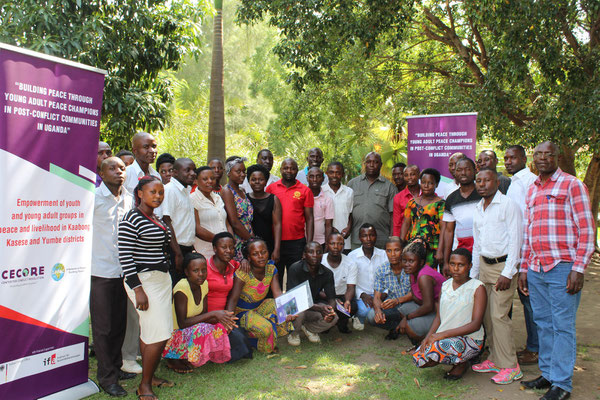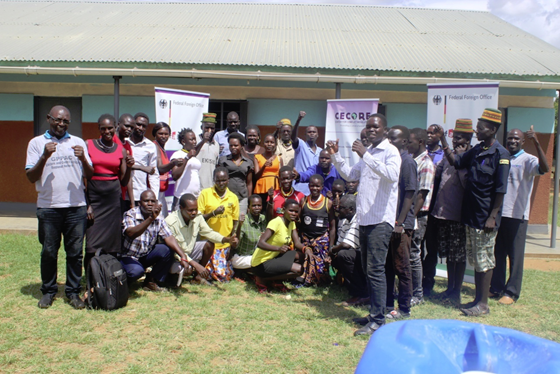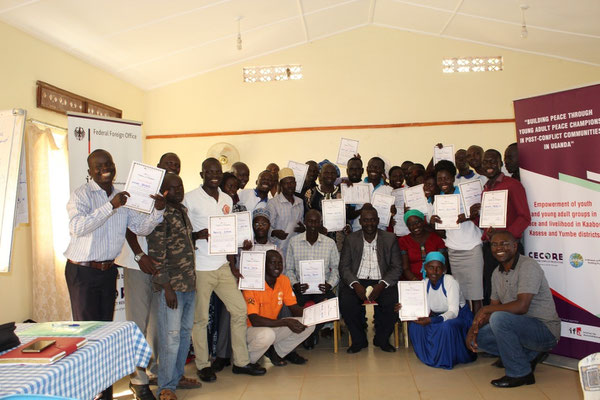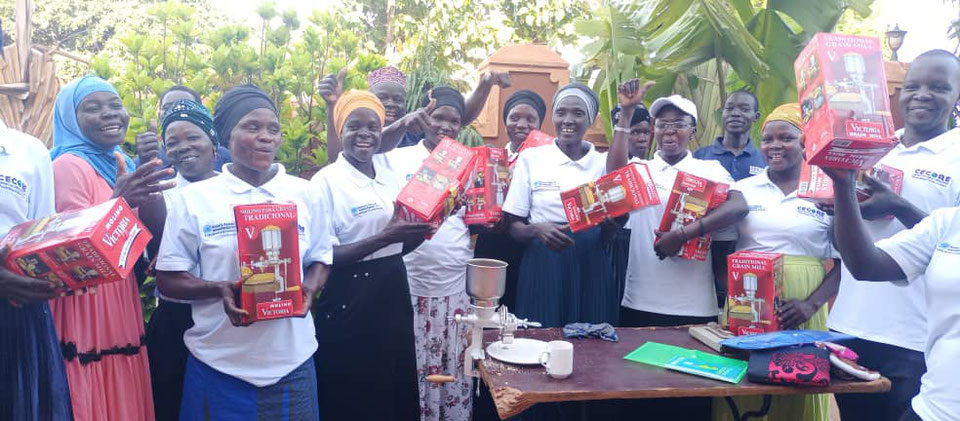Nurturing Non-Violence, Resilience & Active Citizenship
Peace Education
Empowering children and youth with the knowledge, skills and values to prevent conflict, resolve disputes peacefully and build inclusive communities.
CECORE’s Peace Education programme equips children, adolescents and teachers with conflict-transformation skills, social-emotional learning and non-violent problem solving. We deliver school and community-based trainings, peace clubs, teacher capacity building and youth leadership activities that promote lasting social cohesion.
CECORE believes peace begins in childhood. Our Peace Education programme combines classroom curricula, community dialogue and experiential activities to reduce violence, strengthen respect for human rights, and nurture young leaders. Working with schools, the Family & Child Protection Unit and community stakeholders, we deliver locally-adapted interventions especially in vulnerable urban and post-conflict districts to help learners resolve conflict peacefully and become positive agents of change.
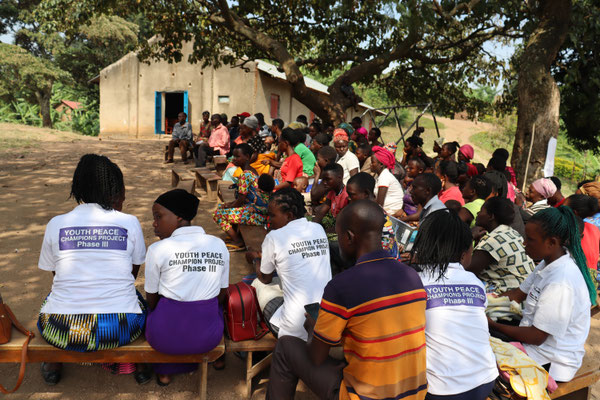
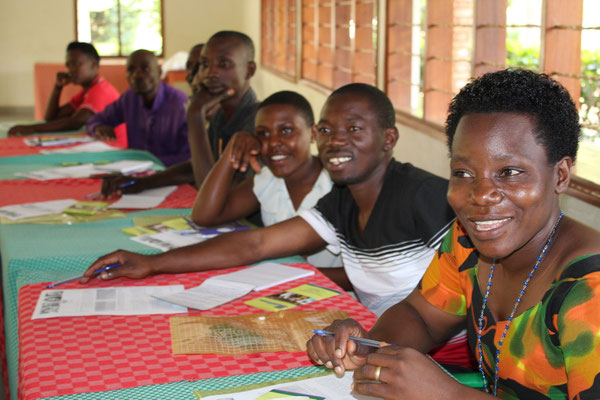
Programme goal
To cultivate a culture of peace among children, adolescents and youth by building capacities for conflict prevention, peaceful dialogue, and non-violent civic engagement.
Objectives
Teach children and youth practical conflict-resolution and communication skills.
Build teachers’ capacity to manage classroom conflict and deliver peace education.
Establish and support school peace clubs and youth peace champions.
Promote child protection, gender sensitivity and non-discrimination in learning environments.
Strengthen linkages between schools, families, child protection agencies and community leaders.
Core activities
School-based training: interactive lessons and modules for primary and secondary learners (social skills, emotional regulation, restorative practices).
Teacher professional development: workshops, mentoring and classroom coaching for educators and head teachers.
Peace clubs & youth leadership: weekly club activities, peer mediation training, community service and youth-led campaigns.
Community dialogues & parent engagement: participatory forums that bring together parents, elders, and local authorities to reinforce peace learning.
Trauma-informed support & referrals: psychosocial first aid, referrals to Family & Child Protection Unit and partner service providers.
Learning-through-play & sports-for-peace: sport and drama programmes that build teamwork, tolerance and resilience.
Methodology & approach
Conflict-sensitive & context-specific: curricula and activities are adapted to local dynamics and informed by conflict sensitivity assessments.
Participatory learning: learners co-create solutions through role plays, simulations, and group problem-solving.
Whole-school approach: interventions engage students, teachers, administrators, and families for an enabling environment.
Gender-responsive & inclusive: materials and delivery ensure the meaningful participation of girls, students with disabilities and marginalised groups.
Monitoring & learning: periodic assessments, focus groups and feedback loops to improve programmes and measure behaviour change.
Target beneficiaries
Primary and secondary school learners (children and adolescents).
Teachers, school administrators and school management committees.
Parents, caregivers and community leaders.
Youth at risk and young people formerly involved in violence (through youth peace champions).
Geographic focus / example sites
Urban school programmes (e.g., Kawempe Division, Kampala) and selected post-conflict districts where CECORE runs youth and peace projects (Kasese, Kaabong, Amuru, Yumbe).
Expected outcomes & impact
Reduced incidents of school-based violence and bullying.
Increased use of non-violent problem solving among students.
Stronger teacher confidence in classroom conflict management.
Active, sustained school peace clubs and youth-led initiatives.
Improved school-community relations and referral links to protection services.
In Kasese, CECORE trained 40 school teachers and established peace clubs in 10 schools. Within 12 months, teacher reports of classroom fights declined by teachers’ self-assessment, while peace clubs organized community dialogues that reduced tensions between neighbouring school catchments.
Now, it’s your turn.
You’ve seen the impact. You’ve heard the stories. Now, it’s your turn to take action. Whether it’s giving your time, sharing your voice, or making a donation, you have the power to create real change.
FAQ’s
Any learner in participating schools; CECORE supports inclusive membership and encourages gender balance.
Yes, CECORE adapts peace education to refugee-hosting contexts (e.g., Adjumani) and integrates sports-for-peace tools.
Programmes run from short 8–12 week modules up to multi-year school partnerships, depending on the donor and context.
